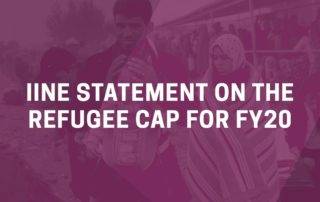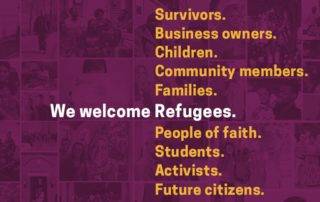IINE statement on the Refugee Cap for FY20
Yesterday, the White House announced plans to admit only 18,000 refugees in the coming fiscal year, the lowest ceiling in U.S. history. Globally, forced displacement is at an all-time high. The world’s 26 million refugees are sheltered in camps, temporary housing, and on city streets. Most have been waiting for as [...]




